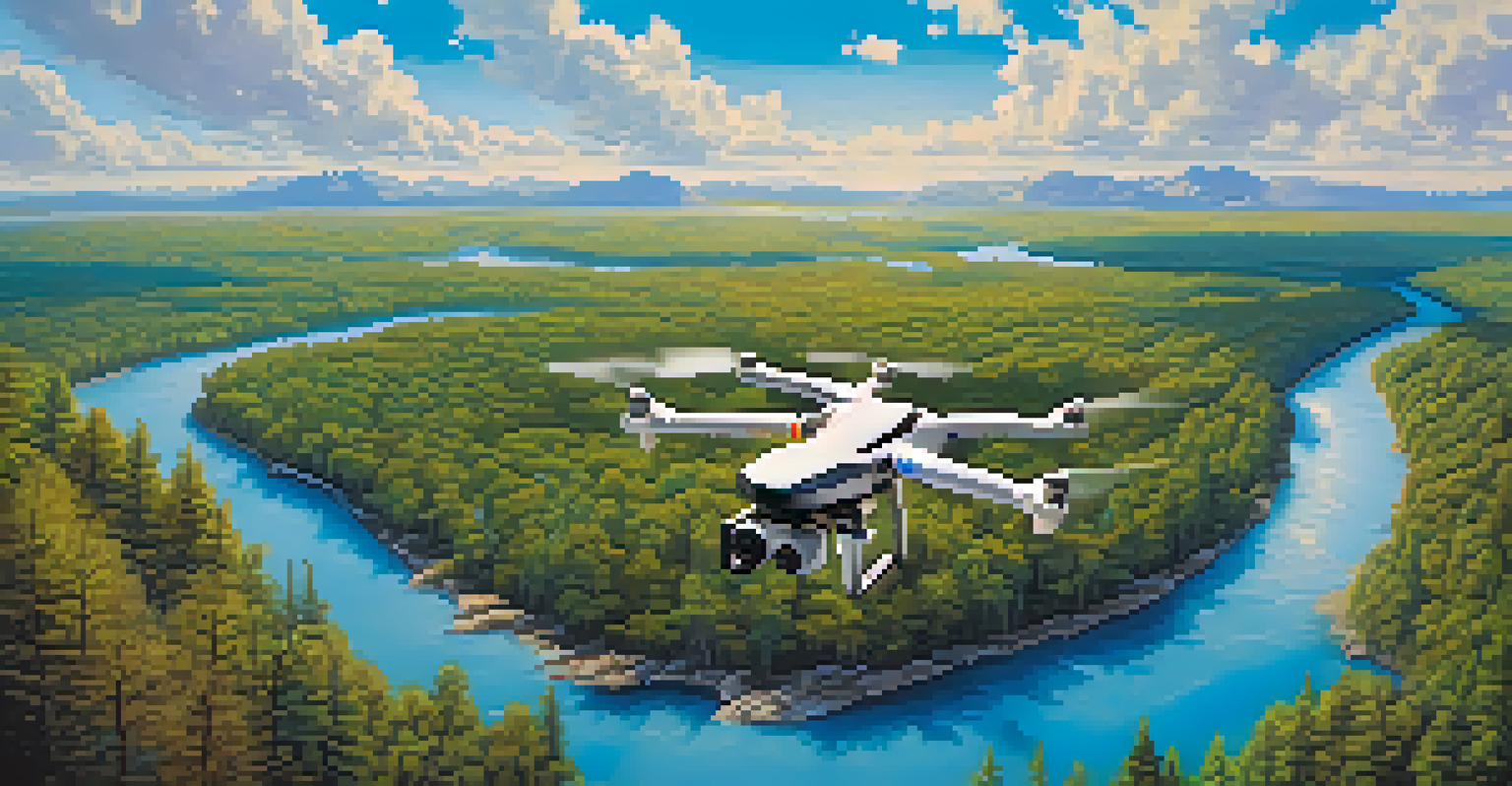Sustainable Tourism: Technologies Reducing Environmental Impact

Understanding Sustainable Tourism and Its Importance
Sustainable tourism focuses on minimizing the environmental impact of travel while promoting conservation and local cultures. It’s essential because, as travelers, our choices can significantly affect ecosystems and communities. By embracing sustainable practices, we can enjoy our adventures while preserving the beauty and integrity of our planet for future generations.
Traveling – it leaves you speechless, then turns you into a storyteller.
Imagine visiting a pristine beach or hiking through a lush forest, only to find that these natural wonders are threatened by pollution and over-tourism. This is where sustainable tourism comes in; it encourages responsible travel that respects both the environment and local traditions. It’s not just a trend; it’s a necessity as we face climate change and biodiversity loss.
As we dive into the technologies supporting sustainable tourism, we’ll discover how innovation can help us travel more thoughtfully. From reducing carbon footprints to promoting local economies, these advancements are paving the way for a brighter future in travel.
Smart Destinations: The Role of IoT in Tourism
The Internet of Things (IoT) is transforming how destinations manage tourism. By using smart sensors and devices, cities can monitor visitor flows and environmental conditions in real-time. This data helps them make informed decisions about resource allocation and crowd management, ensuring that popular attractions aren’t overwhelmed.

For example, smart waste bins equipped with sensors can notify city services when they need emptying, reducing unnecessary trips and cutting down on fuel consumption. Similarly, digital signage can provide real-time information about the best times to visit a site, encouraging tourists to spread their visits throughout the day.
Embrace Sustainable Travel Practices
Travelers can make a significant positive impact on the environment and local cultures by choosing sustainable tourism options.
By integrating IoT technologies, destinations can enhance the visitor experience while also protecting their natural and cultural resources. This balance is crucial for fostering a sustainable tourism model that benefits everyone involved.
Renewable Energy Solutions in the Hospitality Sector
The hospitality industry is increasingly adopting renewable energy sources to power hotels and resorts. Solar panels, wind turbines, and geothermal energy are just a few examples of how these establishments are reducing their carbon footprints. By investing in renewable energy, they not only lower operational costs but also appeal to eco-conscious travelers.
The greatest threat to our planet is the belief that someone else will save it.
For instance, hotels powered by solar energy can significantly reduce greenhouse gas emissions. Some even go a step further by installing energy-efficient appliances and smart systems that optimize energy usage. This way, they create a comfortable environment for guests while minimizing their environmental impact.
As more travelers seek sustainable accommodations, hotels that embrace renewable energy solutions will stand out. It’s a win-win situation: guests enjoy a reduced environmental impact, and businesses enjoy enhanced reputations and potentially increased bookings.
Carbon Offsetting: A Step Toward Greener Travel
Carbon offsetting is a practice where travelers can compensate for the carbon emissions generated by their journeys. This can be achieved by investing in projects that reduce greenhouse gases, such as reforestation or renewable energy initiatives. It’s a simple yet effective way for travelers to take responsibility for their environmental impact.
For example, many airlines now offer passengers the option to offset their flight emissions at the time of booking. This encourages travelers to think about their carbon footprint and choose more sustainable options. By participating in these programs, travelers can support valuable projects that benefit the planet.
Technology Enhances Eco-Conservation
Innovative technologies like IoT and drones are transforming tourism management and conservation efforts, helping protect ecosystems.
While carbon offsetting doesn’t replace the need to reduce emissions, it’s a practical step toward achieving a more sustainable travel industry. It empowers individuals to take action and supports broader environmental initiatives that can lead to significant change.
Eco-Friendly Transportation Options for Travelers
Transportation is a major contributor to tourism's environmental impact, but eco-friendly options are on the rise. Electric vehicles (EVs), bike-sharing programs, and public transit systems all offer sustainable alternatives to traditional car rentals. By choosing these options, travelers can significantly reduce their carbon footprints while exploring their destinations.
Imagine hopping on an electric scooter to navigate a bustling city or renting a bike to explore scenic trails. Not only do these choices lower emissions, but they also allow for a more intimate experience with the local environment. It’s a great way to discover hidden gems that you might miss while in a car.
As cities continue to invest in greener transportation infrastructure, travelers are encouraged to embrace these alternatives. Eco-friendly transportation not only benefits the environment but also enriches the travel experience by fostering a deeper connection to the places we visit.
Technology Supporting Conservation Efforts in Tourism
Technology plays a crucial role in conservation efforts related to tourism. Tools like drones and remote sensing can help monitor wildlife populations and track changes in ecosystems. These technologies provide valuable data that can inform conservation strategies and protect vulnerable species and habitats.
For instance, some national parks use drones to survey large areas more efficiently than traditional methods. This allows park rangers to identify areas needing attention and assess the impact of tourism on wildlife. By utilizing these technologies, conservationists can develop targeted strategies to minimize disruption and protect natural resources.
Future Trends in Sustainable Tourism
Emerging trends like slow travel and increased transparency are shaping a more responsible and engaging tourism landscape.
As travelers become more aware of the importance of conservation, supporting tech-driven initiatives can enhance their travel experience. It fosters a sense of responsibility and connection to the places they visit, ensuring that these precious ecosystems remain intact for generations to come.
The Future of Sustainable Tourism: Trends to Watch
Looking ahead, several trends are shaping the future of sustainable tourism. One notable trend is the rise of 'slow travel,' which emphasizes quality over quantity, encouraging travelers to spend more time in fewer places. This approach allows for a deeper connection with local cultures and minimizes the environmental impact of constant travel.
Another trend is the growing demand for transparency in the tourism industry. Travelers are increasingly seeking information about how their choices impact the environment and local communities. This has prompted businesses to adopt more sustainable practices and communicate their efforts to consumers, fostering a culture of accountability.

As technology continues to evolve, we can expect even more innovative solutions to emerge. From AI-driven travel planning tools to apps that promote responsible tourism, the future looks promising for sustainable travel. By staying informed and making conscious choices, travelers can contribute to a healthier planet while enjoying memorable experiences.